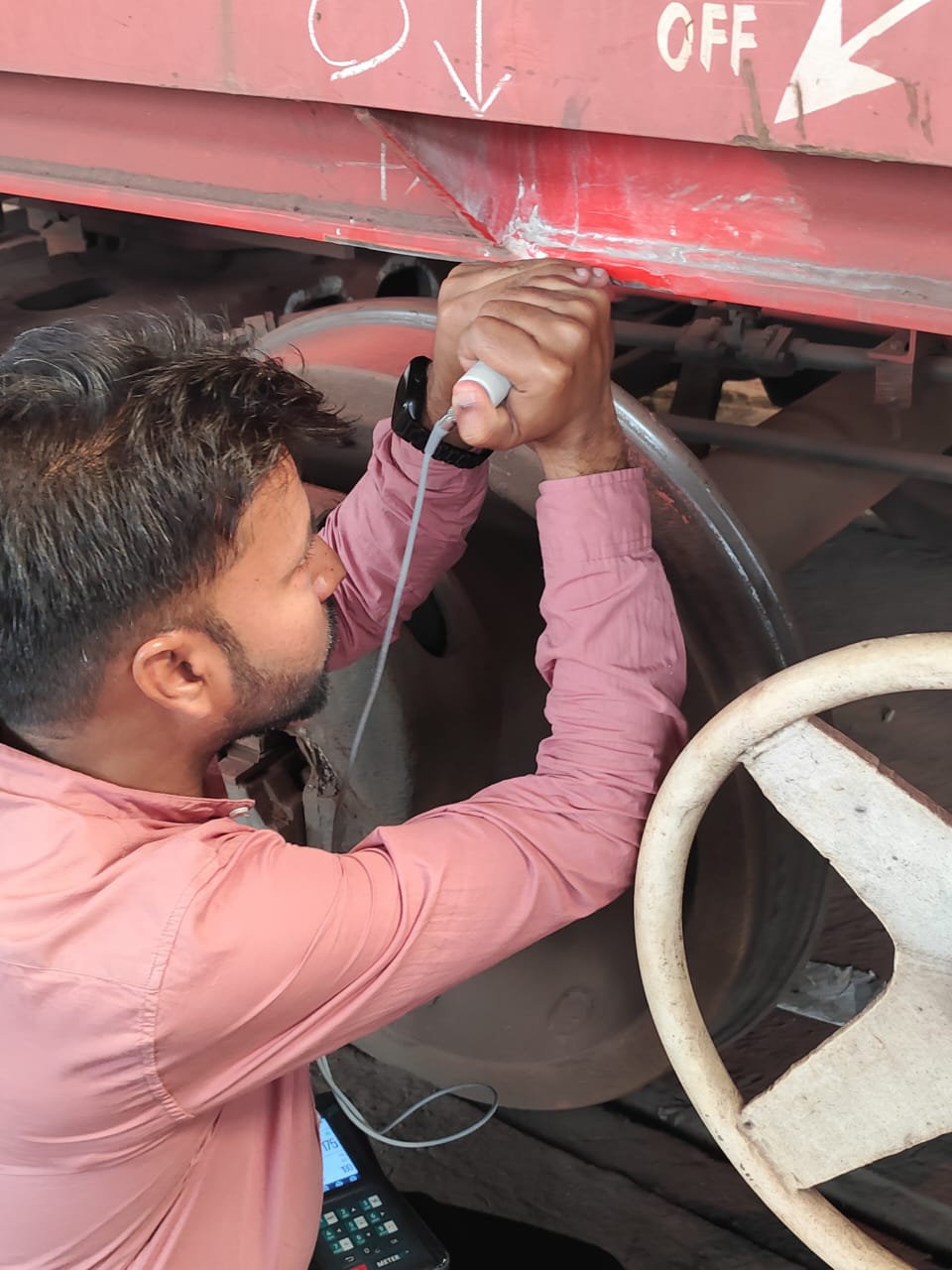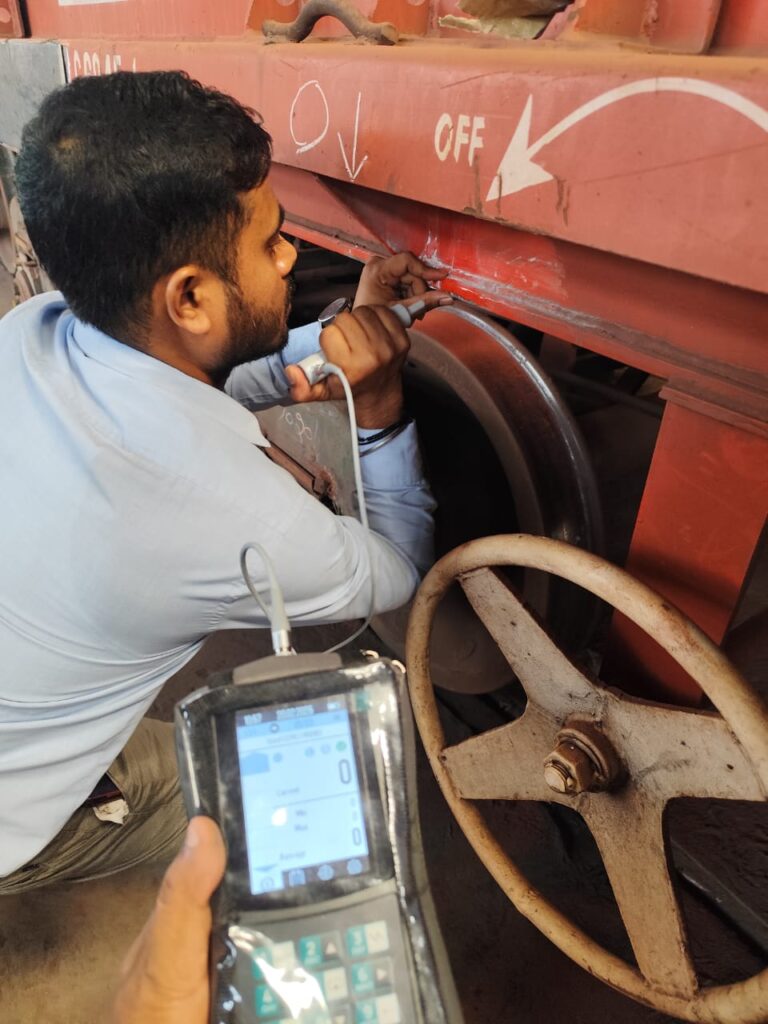
Explore METERDI’s Portable Hardness Tester—a reliable solution for precise hardness testing across industries. Portable hardness testing helps professionals measure material hardness easily, even on-site, making it ideal for quality control.
Our testers accurately assess hardness in metals and alloys, meeting high standards in the Test and Measurement Equipment Industry. Curious about “what is hardness tester” or “what is hardness tester price”? METERDI offers both affordability and premium quality.
Hardness testers vary, each suited to different needs. Common types include Leeb, Rockwell, and Vickers testers. METERDI’s Portable Hardness Tester combines compact design with advanced technology, delivering fast, reliable results. It’s perfect for engineers, automotive experts, and quality controllers seeking efficient, easy-to-use tools.
Investing in METERDI’s Portable Hardness Tester boosts productivity by providing accurate data on-the-go. Our products ensure high precision and excellent durability, making METERDI a trusted choice in India.
For inquiries about hardness tester types, or to know the latest hardness tester price, contact METERDI today!
A portable hardness testing machine is essential for industries that require frequent or in-situ hardness verification. It is designed for:
Non-destructive testing (NDT)
Easy transportation and field use
Immediate quality assurance on the shop floor
Reducing downtime by avoiding lab testing delays
It is an indispensable tool for industries like power plants, oil & gas, heavy machinery, automotive workshops, and metal fabrication.
Before buying a hardness tester, it’s crucial to evaluate your testing environment, material types, and industry standards. For large metal structures or heavy components, go with a Leeb hardness tester for quick and convenient results. If you’re testing small, thin, or heat-treated parts, a UCI hardness tester offers higher precision with minimal surface damage. Choose dual-mode testers if your applications vary. Always ensure the model supports your required hardness scales (HRC, HB, HV, etc.) and includes features like data storage, USB/Bluetooth export, and calibration blocks. Verify the after-sales service, warranty, and availability of spare probes. Investing in a reliable, feature-rich tester from a trusted brand like METERDI ensures long-term accuracy, compliance, and value for money.

A hardness tester is an instrument used to determine the hardness level of a material—how resistant it is to deformation. Hardness testing plays a critical role in industrial quality control, especially in sectors like metallurgy, automotive, aerospace, and construction.
A portable hardness tester allows engineers and technicians to perform on-site hardness tests on large, immovable, or installed components—eliminating the need to send samples to a laboratory.
Understanding the types of hardness testers helps in selecting the right one for your needs. The most common categories include:
Choosing the right portable hardness tester depends on your application, material type, and part geometry. If you’re testing heavy or large components like shafts, castings, or structural steel, a Leeb hardness tester is ideal due to its rebound method. For thin, small, or heat-treated parts like gears, welds, and blades, a UCI hardness tester offers higher precision and minimal surface damage. Consider the material surface condition, shape (flat, curved, or complex), and whether dual-mode (Leeb + UCI) testing is needed. Portability, data storage, output options, and sensor compatibility also play a crucial role. Models with USB, Bluetooth, and software integration offer added flexibility for industrial use.
Standard UCI Sensor (50N) – Suitable for general-purpose applications and most metals.
Low Load UCI Sensor (10N) – Ideal for small, thin, or soft materials where minimal indentation is required.
High Load UCI Sensor (98N) – Used for hard surfaces and rough industrial environments.
Angled or Slim UCI Probes – Designed for testing in tight or hard-to-reach areas like welded joints or inner bores.
D-Type Sensor – Most common and versatile, suitable for steel and cast iron components.
DL-Type Sensor – Slim and long, perfect for measuring in narrow or recessed areas.
DC-Type Sensor – Compact for testing in tight spaces or small surface areas.
G-Type Sensor – Heavy-duty impact device for testing on very hard materials or large, coarse-grained castings.
C-Type Sensor – For soft metals like aluminum or copper alloys.
E-Type Sensor – Used for small or delicate components that require low impact energy.
Portable hardness testers are widely used across industries where quick, on-site material verification is essential. They are ideal for heat treatment inspection, incoming material verification, weld testing, and maintenance checks on machinery and structural components. In sectors like automotive, aerospace, power generation, metal fabrication, and construction, these devices help ensure material integrity without dismantling equipment. Whether you’re testing steel pipelines, gear components, or forged parts, portable testers—especially Leeb and UCI hardness testers—offer fast, non-destructive solutions that support quality assurance and compliance with industrial standards.
Investing in a portable hardness tester for steel is a cost-effective way to ensure the mechanical reliability of your components without interrupting operations. Steel, being one of the most commonly used industrial materials, requires regular hardness verification—especially in applications involving machinery parts, pipelines, structural frameworks, and tool steels. With a portable device, you can conduct non-destructive hardness tests directly on-site, reducing downtime and enhancing quality control. Whether using the Leeb method for heavy components or the UCI method for thin or curved surfaces, these testers deliver accurate, repeatable results. For manufacturers, maintenance teams, and quality inspectors, it’s a smart investment that improves productivity and product lifespan.
© 2024-2025 METERDI Instruments India Pvt Ltd. All Rights Reserved.